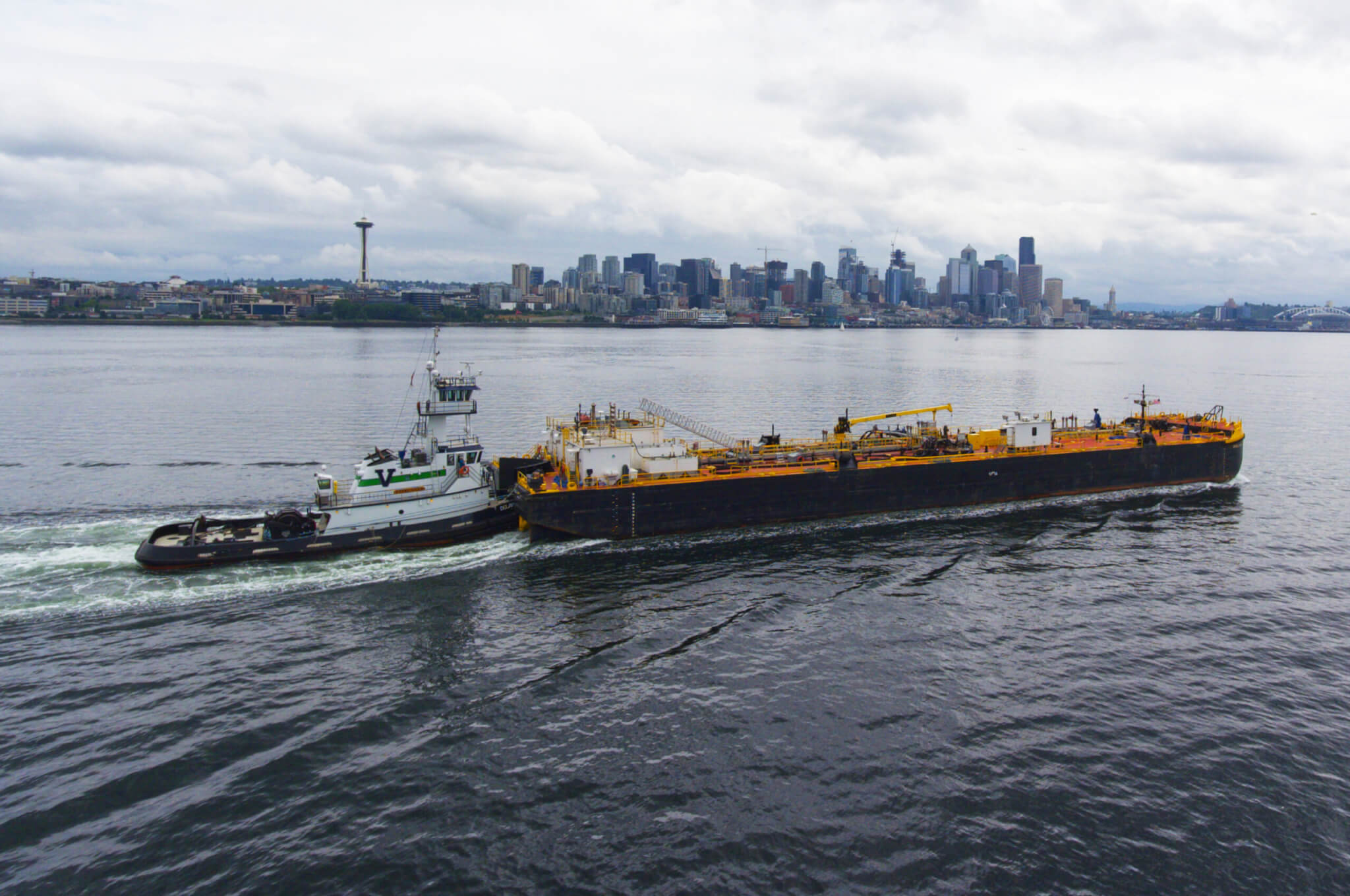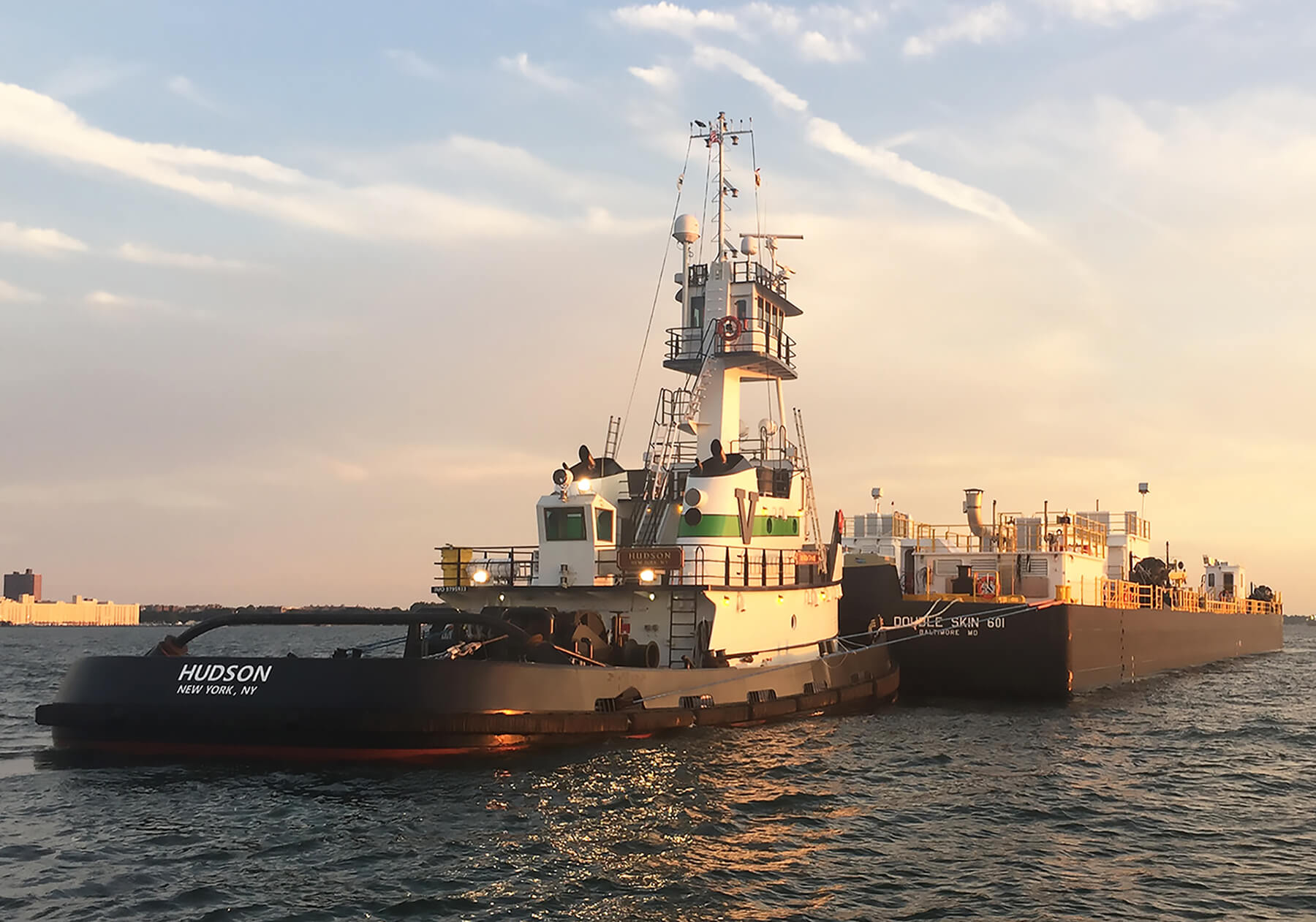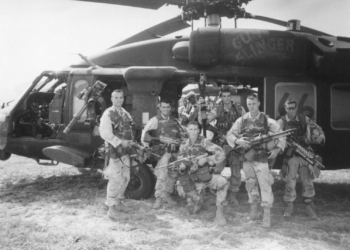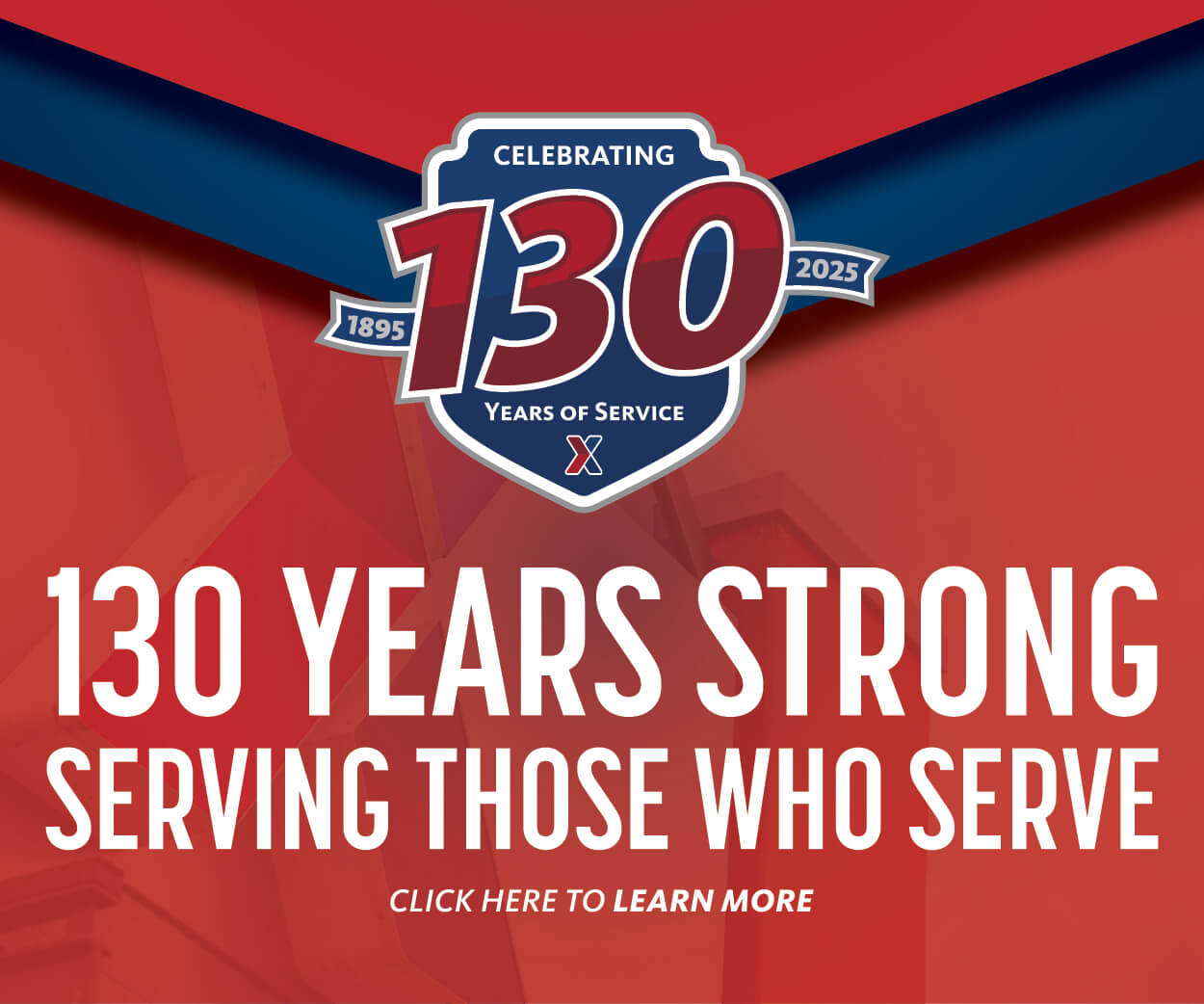From the moment he started a career as a green deckhand on a towboat, Army National Guard veteran Shayne Turbeville was enthusiastic about the work.
Turbeville, now a safety and environmental coordinator for Magnolia Marine Transport, said the job allowed him to continuously learn new skills and steadily move up the ladder, all while increasingly earning more money.
The tugboat, towboat and barge industry is a good career choice for veterans, Turbeville and others said, particularly because its principles, in many ways, mirror those of the Armed Forces: following authority, working as a team and being a leader.
“Everybody works together, and you have to train men below you to do your job, (for you) to move up,” said Marine Corps veteran Charles Thornton, who recently was promoted to port captain with Magnolia Marine Transport. “It really goes right along with it — the only thing you don’t do is shoot.”
The industry is regulated by the Coast Guard, and entry requires passing a background check, drug test and medical evaluation. More advanced positions require passing an exam. Veterans, particularly those who’ve served on vessels, have an advantage with their pre-existing knowledge, the veterans said.
As a master gunner in the military, Turbeville learned to train others and do mechanical work, and he put the same skills to use in his new career.
“You have CFRs (Code of Federal Regulations rules), policies and procedures … you’re able to do that in the military, and you bring it to the profession,” he said.
Mariners new to the industry and starting as deckhands have the opportunity to quickly work their way up, the veterans said.
“Guys can make $100,000 within five years,” Thornton said. “I tell all the guys, ‘If you want a career, then the money is there for the taking, if you’re willing to stick around. If you’re looking for just a temporary paycheck, it’s not worth it. “

Navy veteran Jullian Woods, a barge tankerman for The Vane Brothers Company, said the best part is the industry’s work schedule, with long stretches on the job followed by equally long time off. Woods has a three weeks on/three weeks off schedule and spends his down time riding his motorcycle across the country.
Scott Bruman, also a Navy veteran and now tugboat chief engineer with The Vane Brothers Company, has the same schedule, which he said allows him to spend true quality time with his family.
Modern vessels offer most of the comforts of home: TV in rooms, Wi-Fi, kitchen appliances and even fancy coffee makers, Bruman said. Sometimes, two-bunk rooms are assigned to one person only.
“You’re limited on some space because you’re on a boat, but as far as amenities, there’s not much more you can ask for,” he said.
Woods said his current boat, only seven years old, “is really nice,” and he and another crew member share a three-person room. However, other boats are much less comfortable, he said.
“I have been on boats (prior to joining Vane Brothers) where the living quarters are literally a shipping container that they welded on the boat. The insulation sucks, and it’s not fun,” he said. “But one thing I found is that you can get used to anything. I am not looking forward to getting back on boats like that, but if it happens it’s like anything else — you get used to it and after a while you forget it’s even there.”
His favorite experience was working on the SS St. Mary’s Challenger, which was launched in 1906 and is one of the oldest operating vessels in a fleet that is otherwise made up of more modern boats, Woods said.
“It felt like being in a museum,” he said. “Some of the systems on the boat were steam powered.”
The job also allowed him to travel extensively, from Puerto Rico to the Great Lakes.
Still, anyone who wants to join the industry should consider its downsides, the veterans said.
Although waterways transport is the safest mode of freight transportation, the job can be dangerous if the rigorous safety protocols are not followed, particularly when transporting explosive or flammable cargo, Woods said. It’s also physically demanding, and while the industry prioritizes operating safely, there is a risk of injury or falling overboard, he added.
“If the guy I work with is asleep, it could be many hours before it’s reported and I’m found.”

The work schedule can be taxing on families, too.
“You’re gone a lot,” Bruman said. “But in terms of the military, most significant others are pretty strong already.”
The tugboat, towboat and barge industry is the largest segment of the American maritime industry, supporting over 270,000 jobs and moving up to 665 million tons of cargo each year, according to The American Waterways Operators.
It is mostly composed of men, but there are some women, and even a few all-female crews, the veterans said. Most importantly, there are plenty of opportunities, they said.
“Nobody knows about it (the industry),” Thornton said, “and it’s huge. It runs the country.”





































